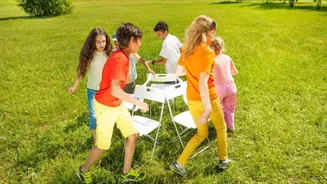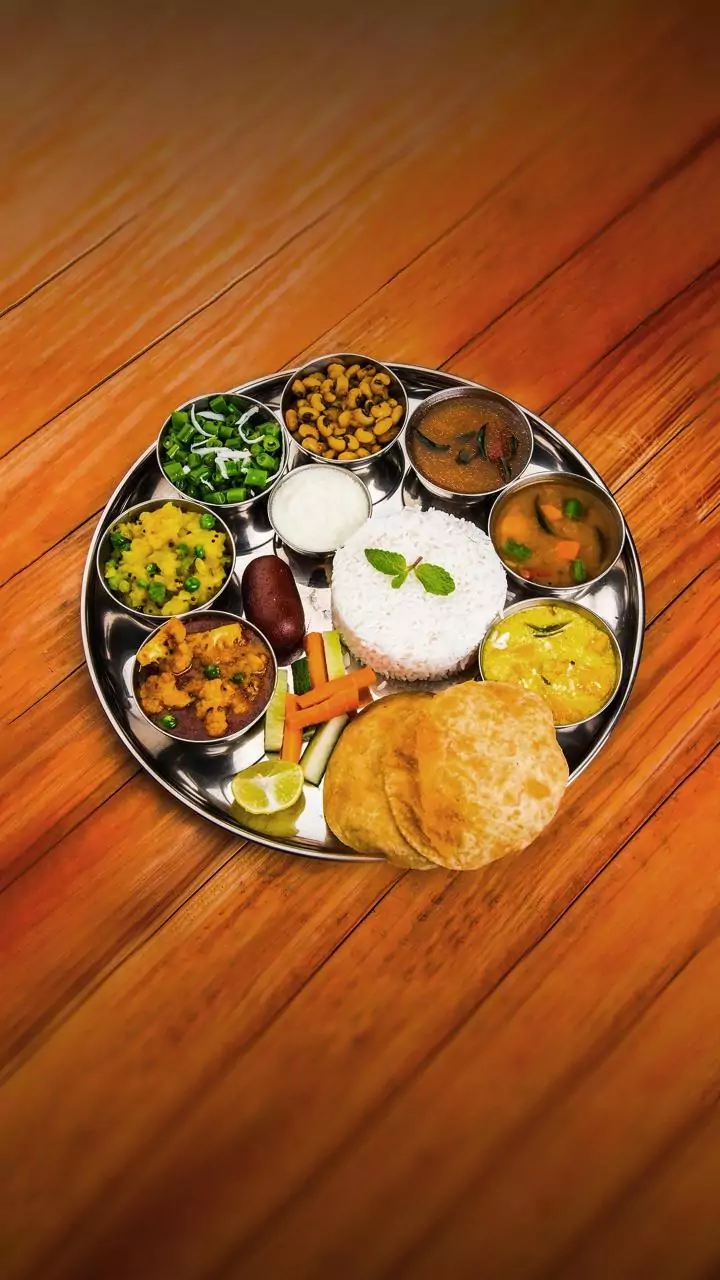Empowering Solo Female Travelers: Essential Safety Tips to Explore the World Safely! Read on for crucial advice
The wanderlust is strong, isn't it? The desire to see new places, experience different cultures,
and break free from the routine is an undeniable pull. And why shouldn’t women answer that call? Solo female travel is a growing trend, empowering women to explore the world on their own terms.
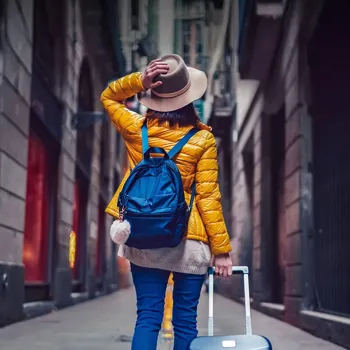
However, safety is paramount. Planning meticulously and being aware of your surroundings can make your solo adventure a safe and enriching experience. So, pack your bags, prep your itinerary, and let's dive into essential safety tips for every Indian woman dreaming of traveling the world solo!
Plan thoroughly for safe travel: research, share itinerary, use apps, pre-book
Planning is your best friend. Before you even think about packing that perfect travel outfit, dedicate time to researching your destination. Understand the local customs, laws, and social norms. For instance, some cultures may have specific dress codes or expectations for women.

Knowing these nuances beforehand can help you blend in and avoid unwanted attention. Share your detailed itinerary with a trusted friend or family member, including flight details, accommodation addresses, and planned activities. Check in with them regularly, even if it's just a quick "I'm safe!
" message. Consider using a travel app that allows you to share your location with your contacts. This provides an extra layer of security, especially when exploring unfamiliar areas. Pre-booking your accommodations and airport transfers is also a smart move.
It eliminates the stress of finding a safe place to stay upon arrival and avoids potential scams.
Blend in to stay safe while traveling: dress modestly, be confident, learn local phrases, trust instincts
Blending in is key. While you might want to flaunt your latest fashion finds, remember that attracting too much attention can make you a target. Dress modestly and avoid wearing flashy jewelry or carrying expensive handbags, especially in crowded areas.

Try to adopt a confident demeanor, even if you're feeling a bit nervous. Walk with purpose and make eye contact with people. Projecting confidence can deter potential troublemakers. Learn a few basic phrases in the local language.
It shows respect for the local culture and can be helpful in navigating situations where English isn't widely spoken. Even simple phrases like "hello," "thank you," and "excuse me" can go a long way in building rapport with locals and making you feel more comfortable.
Avoid discussing your travel plans or personal information with strangers. Keep your conversations general and avoid revealing details about your accommodation or travel route. Always trust your instincts. If a situation feels uncomfortable or unsafe, remove yourself from it immediately.
Be mindful of your digital footprint while traveling
Your digital footprint matters. In today’s digital age, it's crucial to be mindful of your online activity while traveling. Avoid posting real-time updates about your location on social media. Wait until you've left a place before sharing your photos and experiences.
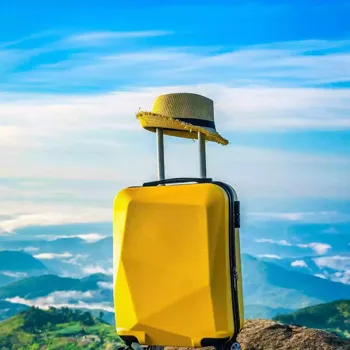
Sharing your location in real-time can alert others to your whereabouts, potentially compromising your safety. Be cautious when using public Wi-Fi networks, as they are often unsecured and can be vulnerable to hacking.
Avoid entering sensitive information, such as passwords or credit card details, on public Wi-Fi. Consider using a VPN (Virtual Private Network) to encrypt your internet connection and protect your data.
Back up your important documents, such as your passport, visa, and travel insurance details, and store them securely in the cloud or on a password-protected device. This will ensure that you have access to these documents even if your physical copies are lost or stolen.
Choose safe transportation wisely for travel security
Choose your mode of transport wisely. Opt for reputable transportation services, such as licensed taxis or ride-sharing apps, instead of hailing a cab from the street. Before getting into a taxi, confirm that the driver has a valid license and that the meter is working.
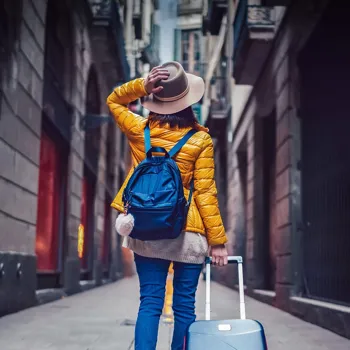
If using a ride-sharing app, double-check the driver's identity and license plate number against the information displayed on the app. When using public transport, such as buses or trains, be aware of your surroundings and keep your belongings close to you.
Avoid traveling alone at night or in sparsely populated areas. If you must travel at night, try to travel with a group or choose a well-lit and busy route. Research the safety of different modes of transport in your destination and choose the options that are known to be the safest.
Prioritize safety when choosing accommodation
Accommodation considerations are vital. When booking your accommodation, prioritize safety and security. Choose hotels, hostels, or guesthouses that are located in well-lit and safe neighborhoods. Read reviews from other travelers to get an idea of the establishment's safety record.

Before checking into your room, inspect it carefully to ensure that all windows and doors are properly secured. Use the door chain and deadbolt whenever you are in your room. Avoid opening the door to strangers.
If someone knocks on your door claiming to be hotel staff, verify their identity with the front desk before opening the door. Keep your valuables locked in the hotel safe or hidden in a secure location in your room. Avoid leaving your belongings unattended in public areas of the hotel.
Trust your intuition, stay prepared, and prioritize personal safety
Trust your intuition and be prepared. Always trust your gut feeling. If a situation feels off, it probably is. Don't hesitate to remove yourself from the situation, even if it means being impolite. Carry a personal safety alarm with you.
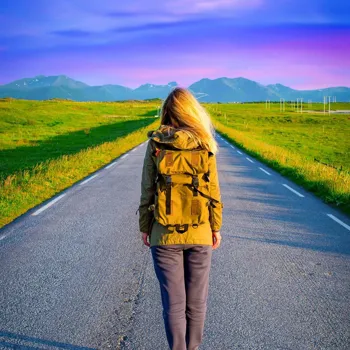
These alarms emit a loud siren when activated, which can deter attackers and attract attention. Learn basic self-defense techniques. Knowing how to protect yourself in a physical confrontation can be a valuable asset. Consider taking a self-defense class before your trip.
Be aware of the emergency contact numbers in your destination. Program these numbers into your phone so that you can easily reach help if needed. Carry a small first-aid kit with you, including essentials like band-aids, antiseptic wipes, and pain relievers.
Travel solo safely as a woman, be prepared, not scared
Traveling solo as a woman can be an incredibly rewarding experience. By taking these safety precautions and staying aware of your surroundings, you can minimize risks and enjoy a safe and unforgettable adventure. So, go ahead, book that ticket, and explore the world with confidence!
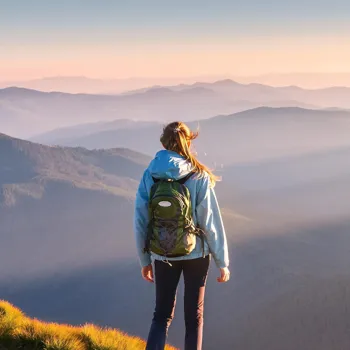
Remember, it's about being prepared, not scared. Happy travels!
AI Generated Content. Glance/InMobi shall have no liability for the content


